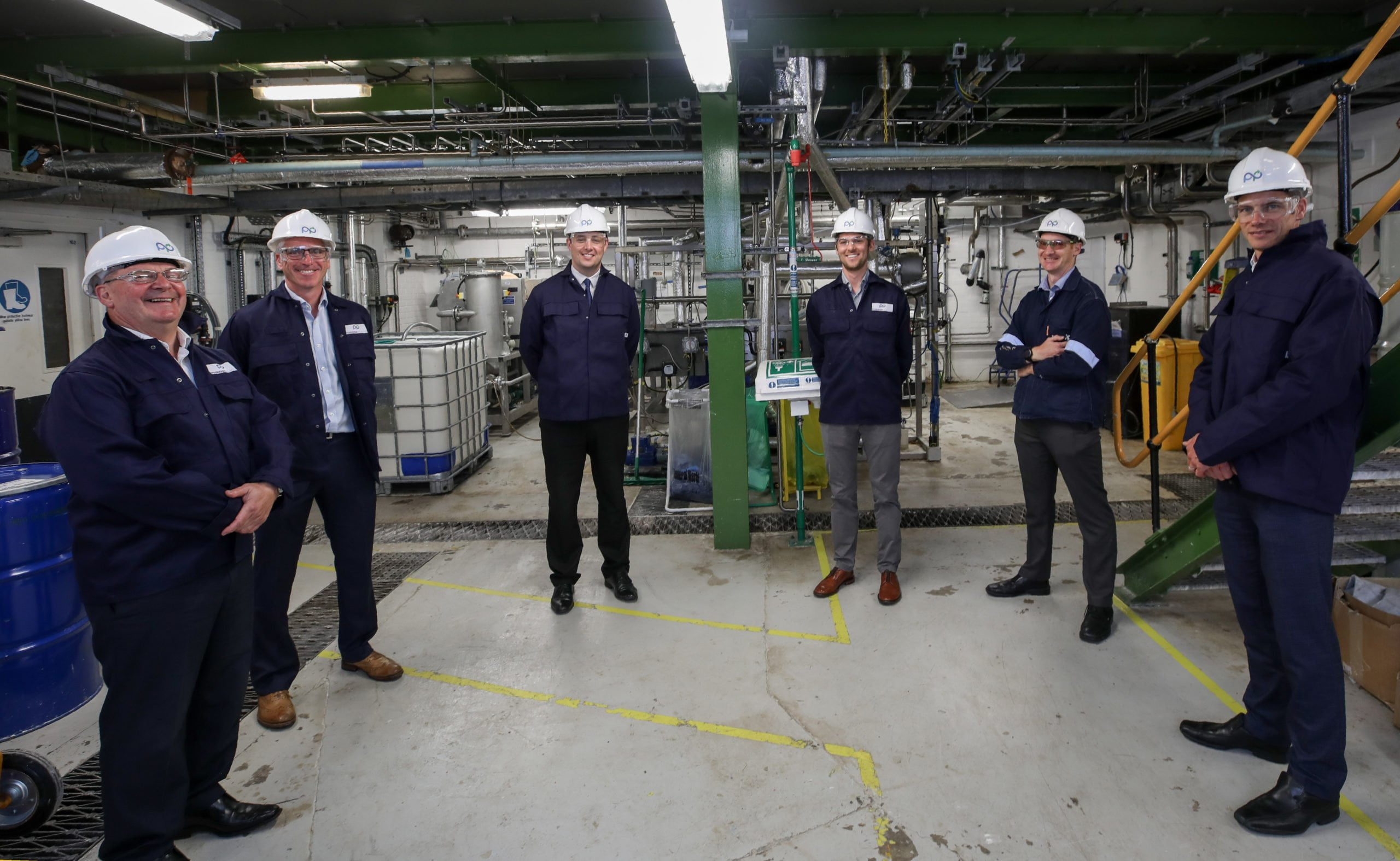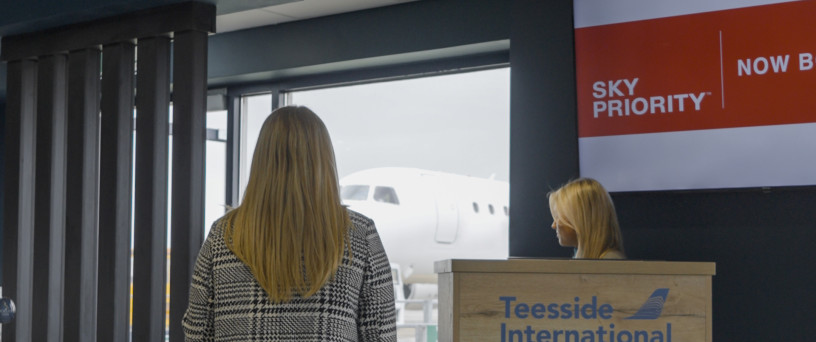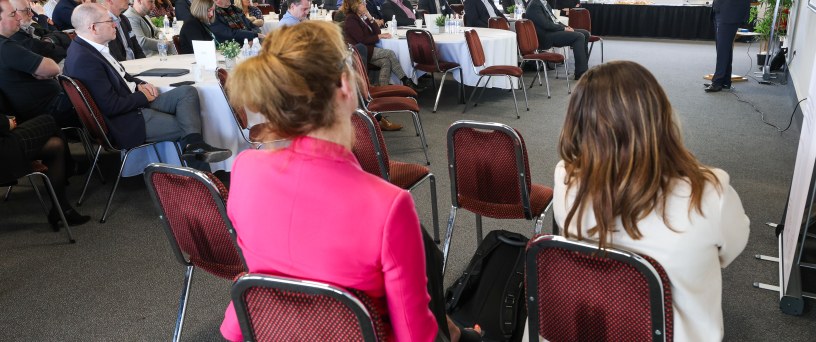
Mayor Meets Firms Collaborating On Sustainable Sportswear After Funding Success
Business & Invest | Published on: 3rd September 2020

Mayor Ben Houchen has met two Tees Valley-based companies working together to create the first range of zero-waste sportswear after the revolutionary project secured £25,000 of funding.
The scheme is being led by Middlesbrough’s sustainable sportswear firm Presca, which was awarded the cash in the first phase of the Tees Valley Mayor and Combined Authority’s Collaborative Networks Programme. The £1.4million programme aims to help businesses work together to bring new products and processes to market to improve productivity, create employment, reduce carbon and grow the economy.
Working alongside recycling experts Poseidon Plastics, based at the Wilton Centre, and research experts at Teesside University, Presca is testing the technology and methods needed to recycle polyester fabric garments back into their constituent elements. This means the manufacturing process can begin again without the need for new materials, thereby taking a significant step towards creating a circular economy in the sportswear industry.
While the project was briefly paused due to the coronavirus pandemic, the first fabric tests have been completed with more currently ongoing. Following the proof-of-concept project Presca plans to launch the world’s first entire range of fully circular sportswear, starting with the announcement of the new Forever Tee which is now available to purchase at www.prescasportswear.com.
Tees Valley Mayor Ben Houchen said: “Teesside, Darlington and Hartlepool are home to fantastic, innovative businesses, world-class research outfits and brilliant institutions – Presca, Poseidon and the University are excellent examples of these. We need to make sure all of our talent is working together to support each other’s growth and to drive the region forward in our ambitions.
“This collaborative spirit is all the more important as we begin to recover our economy from the coronavirus pandemic. We’ve seen the Tees Valley pull together with immediate responses to the outbreak, doing some great things in the process. Now we need to look to the future and back our businesses more than ever by giving them the funding they need to draw on expertise located right here and deliver on groundbreaking projects.
“Presca’s plans fit in really well with our clean energy ambitions. A lot of the time, we talk about low carbon and sustainability in terms of massive industrial schemes that may not mean much to the man on the street. But smaller-scale, more relatable, projects like this have the potential to revolutionise industries too. It was great to meet the teams and learn how this project will help lead the way in zero-waste clothes production.”
It is thought this circular sportswear solution will not only reduce the need for material resources, but it will deliver an approximate 50% energy saving. It will also lessen Global Warming Potential (a measure of the greenhouse gases emitted) by 30% compared to a fabric from virgin sources.
Rob Webbon, CEO of Presca, said: “Sustainability is the foundation that Presca has been built on. Creating a circular approach for our full range has always been our ultimate ambition and is essential to our sustainability journey. This funding is a significant step towards making that ambition a reality.
“Fashion is currently the third most polluting industry in the world after oil and agriculture. Every second the equivalent of one truck load of clothing is landfilled or incinerated. Only 1% of clothing is currently being recycled into new garments.
“The Poseidon process won’t just work with fabrics, but can recycle any challenging polyester waste, such as coloured plastic bottles, into the building blocks for new garments. The project will enable us to establish a process and strategy in which we can bring a viable and scalable circular range to the retail market.”
Martin Atkins, CEO of Poseidon commented: “We’re delighted to be working with Presca and Teesside University on a project which has the potential to materially reduce both plastic waste and the energy intensity of the fashion industry. This collaboration represents a very positive step towards delivering a circular economy solution to one of the key environmental challenges for the fashion industry. It also highlights the important contribution that Teesside based companies, local government and research institutions can make in the development of sustainable solutions to the environmental challenges which we all face.’
Other successful projects to be awarded funding from the Collaborative Networks Programme include a scheme to turn physiotherapy exercises for people with breathing difficulties into 3D games; the pilot of an integrated mobile app and wellbeing support to reduce stress and mental health issues in the workplace; and demonstration of a next-generation scaffold platform system for building sites.
Share this post

